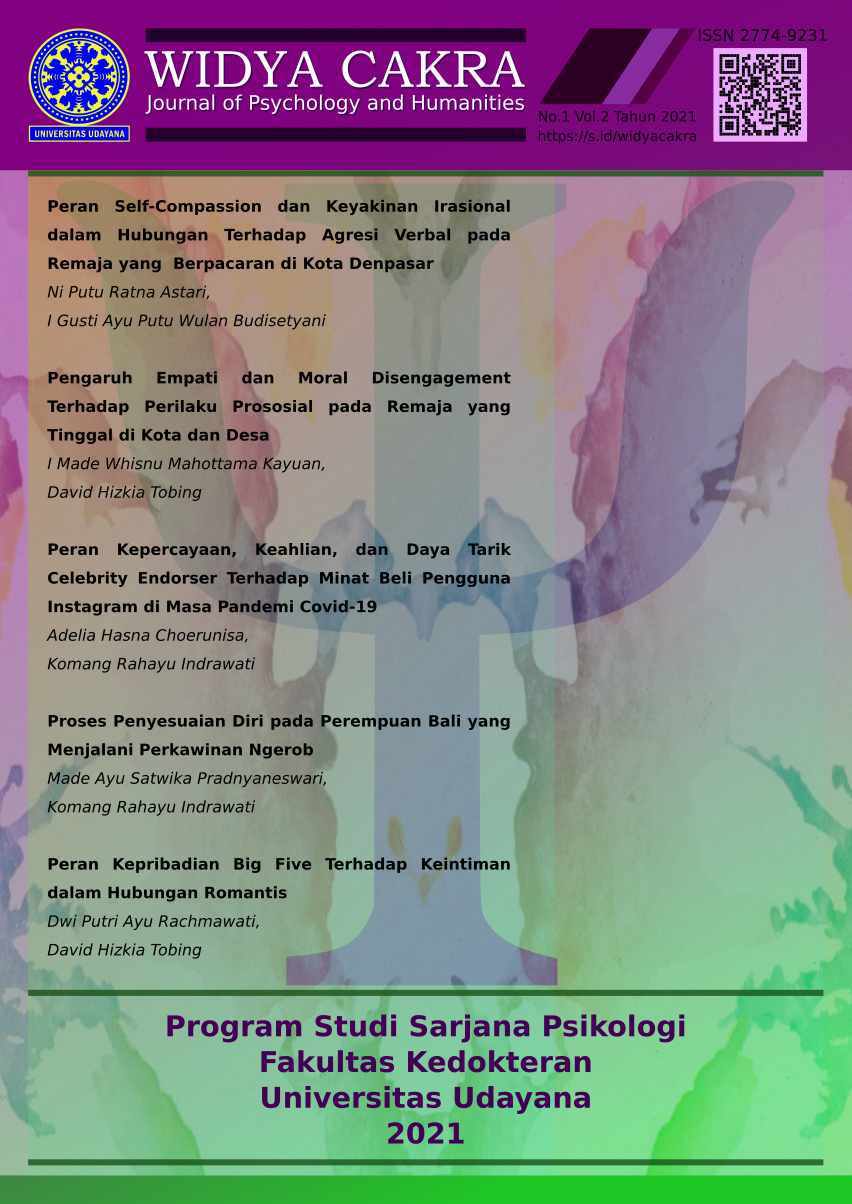DESCRIPTION OF PSYCHOLOGICAL NEEDS IN CHILDREN LEARNING DIFFICULTIES
Abstract
Children who do not want to do well in school ususally show low leaning achievement. The cause can come from poorly met psychological needs. When the child's needs are not met, it will hinder the development and adjustment of the child, one of which is the delay in absorbing learning in class so that the child will have difficulty learning.
The purpose of this study was to determine the psychological picture of children with learning difficulties. This research uses a qualitative case study method. The sampling technique used was purposive sampling. The subjects in this study were sixth grade elementary school children who had low achievement in class. Subjects are children who still have difficulty reading, writing, and arithmetic and attend public schools. The data collection technique was carried out by non-participatory observation of the subject and semi-structured interviews with parents and school teachers. The collected data is analyzed using case study analysis techniques according to Creswell (2014).
The results showed that there are patterns that are categorized into 14 categories consisting of 3 characteristics of children with learning difficulties such as low memory, low learning motivation and the character of children who are quiet and don't talk much. The other 11 categories are psychological needs that arise in children with learning difficulties, namely Need of Abasement, Need of Aggression, Need of Succorance, Need of Affiliation, Need of Exhibition, Need of Rejection, Need of In Avoidance, Need of Autonomy, Need of Order, Need of Play.
Downloads
References
Adelia, Silvia. 2015. Anak dengan Kesulitan Belajar Khusus. Diunduh dari https://www.kompasiana.com/silvia421/anak-dengan-kesulitan-belajar khusus_550ffd80a333118b37ba7e71 26 feb 2018.
Anggaswari, A. A. A. W. D., & Budisetyani, I. G. A. P. W. (2016). Gambaran Kebutuhan Psikologis pada Anak dengan Gangguan Emosi dan Perilaku (Tinjauan Kualitatif dengan Art Therapy sebagai Metode Penggalian Data). Jurnal Psikologi Udayana, 3(1), 86–94. https://doi.org/10.24843/jpu.2016.v03.i01.p09
Creswell, J. W. (2014). Researcch Desain Pendekatan Kualitatif, Kuantitatif, dan Mixed. Yogyakarta: Pustaka Pelajar.
Desiningrum, D. R. (2016). Psikologi Anak Berkebutuhan Khusus. Yogyakarta: psikosain.
Gunarsa, Singgih D. 2008. Psikologi Anak: Psikologi Perkembangan Anak dan Remaja. Jakarta: PT BPK Gunung Mulia.
Handayuni, T. S. (2017). Article Gambaran Kebutuhan Psikologis Anak Berbakat Tyesa Sri Handayuni Ciri- ciri keberbakatan Kebutuhan Psikologis. Indonesian Journal of School Counseling, 2, 39–43. https://doi.org/10.23916/08420011
Kholifah, R. (2015). . Motivasi Belajar Seorang Slow Learner di Kelas IV SD Kanisius. 49(23–6), 1–15.
Melisa, Fenry. 2013. Jumlah Anak Berkebutuhan Khusus di Indonesia Tinggi. Diunduh dari http://nasional.republika.co.id/berita/nasional/umum/13/07/17/mq2zvp-jumlah-anak%20berkebutuhan-khusus-di-indonesia-tinggi 20 Maret 2018
Raharjo, Trubus dan Fajar Karwuyan, L. N. A. (2011). Identifikasi Learning Disability pada Anak Sekolah Dasar. Staf Pengajar Fakultas Psikologi UMK, 4(2).
Moleong, L. J. (2014). Metodologi Penelitian Kualitatif. Bandung: PT REMAJA ROSDAKARYA.
Santrock, J. W. (2007). Perkembangan Anak, Edisi Ketujuh, Jilid 2. Jakarta: Penerbit Erlangga.
Soetjiningsih, C. H. (2012). Perkembangan Anak Sejak Pertumbuhan Sampai Dengan Kanak-Kanak Akhir. Jakarta: Prenada Media Group
Sugiyono, P. D. (2014). Metode Penelitian Kombinasi (Mixed Methods). Bandung : Penerbit Alfabeta.

This work is licensed under a Creative Commons Attribution-NonCommercial 4.0 International License.









